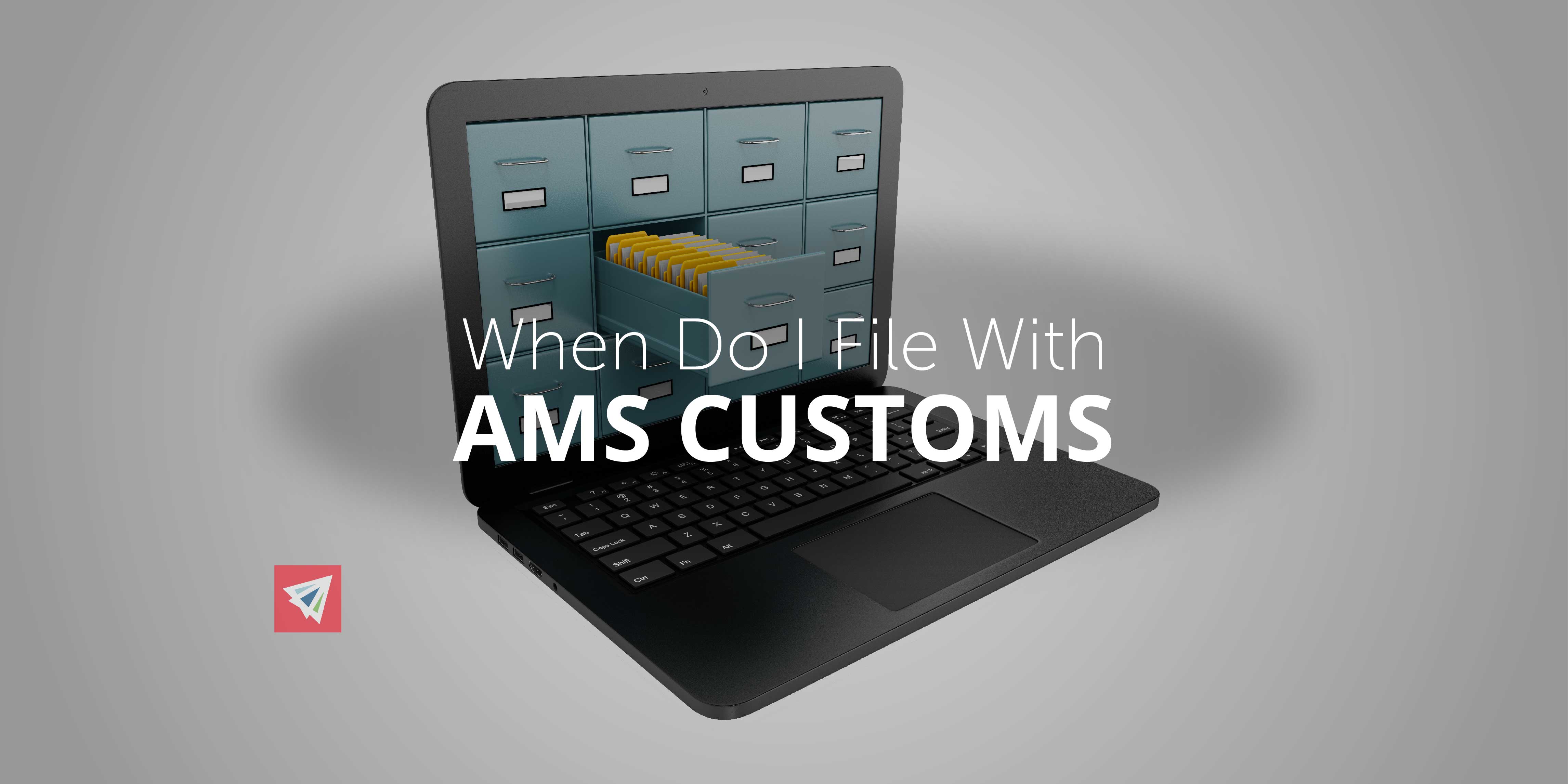AMS, or the Automated Manifest System, plays a huge role in imports to the United States. It was created by U.S. Customs to coordinate information release between parties involved in international shipments (SSLs, Airlines, Rail Carriers, etc.) AMS was created largely for security and efficiency purposes. The more information that U.S. Customs has in advance to cargo arrival, the more efficient and intentional they can be in their cargo screenings, shipper reviews, and electronic filing. This makes clearing Customs low-risk and easy – at least for those who file AMS properly.
When Do I File with AMS?
You must file with AMS 24 hours before your goods leave their origin country. Failure to do so will result in penalties and fines from U.S. Customs. There are some situations in which filing with AMS can be tricky; such as a transloaded shipment instance.
Suppose you have a shipment coming from Hong Kong to Seattle. Since the shipment can’t come directly over to Seattle, it will most likely be transloaded in South Korea. For this shipment, the country of origin is Hong Kong, and the destination port is in Seattle, but South Korea would be listed as the “last foreign port.” Customs requires that AMS be filed with 24 hours advance to the cargo’s departure from its last foreign port. This means, in order to avoid any fines or penalties, you would have to file AMS 24 hours or more before it departs from South Korea (in the above example).
What are Penalties and Fines for Late AMS Filing?
Filing late and subjecting yourself to Customs fines and penalties is no fun. For every “instance”, or improperly filed AMS requirements, your company may be subject to fines of $5,000-$10,000. And it’s not uncommon that you hear about instances such as this.
We have heard stories of companies being charged upwards of $30,000-$40,000 for overlooking a few different AMS filing details when importing goods to the U.S. In order to maintain cooperation with all importing U.S. residing businesses, AMS makes fines heavy and keeps restrictions tight. Violations of AMS requirements will not only cost you money – it will put your reputation at state with U.S. Customs. This means any future cargo imported under your name will more than likely be subject to cargo screenings and in-depth inspections creating possible delays at customs.
Conclusion
It’s no fun to be on U.S. Custom’s bad side, and improperly filing AMS is one way to get there. Just remember – you must file with AMS 24 hours or more in advance to cargo departure from its country of origin. In the case of a shipment that is being transloaded, AMS must be filed 24 hours or more in advance to its departure from the last foreign port.
If you are nervous about incurring penalties from improperly filing AMS, or would like to learn more about the subject, give one of our team members a call. We deal with AMS on a daily basis and know the ins and outs of efficient and detailed filing, and are happy to help in any ways we can!
